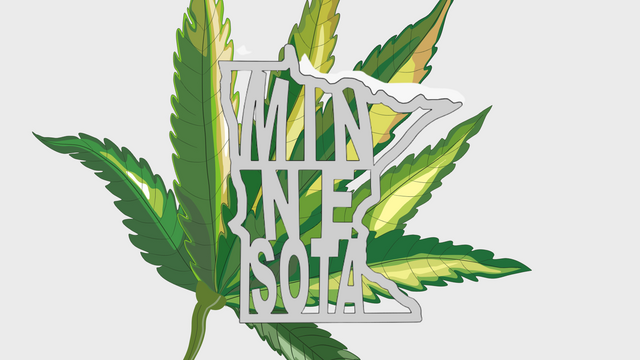Minnesota Legalizes THC and May Open New Market for Oregon Hemp Producers

Minnesota lawmakers recently passed legislation allowing THC infused food and beverage items containing up to 5 milligrams per serving and 50 milligrams per package. The twist however is the legislation did not outright legalize “marijuana” (i.e., cannabis plants with a THC concentration of greater than 0.3%). Instead, THC products in Minnesota must be derived from hemp plants and cannot exceed a total concentration of 0.3% delta-9 THC.
The new regulatory framework adopted by Minnesota is a bit confusing, and several Republican legislators who voted in favor of the bill themselves admit they did not know they were voting to legalize delta-9 THC. This blog post will clarify what is now allowed in Minnesota and how the state’s developing marketplace may become an attractive selling point for Oregon hemp businesses.
What did Minnesota Legalize?
The new legislation coming out of Minnesota legalizes cannabinoids so long as they are extracted from “certified hemp.” Meaning that both delta-8 and traditional delta-9 THC are legal for sale in Minnesota if they are derived from a hemp plant and the products contain less than 0.3% THC by dry weight. While this means edibles in Minnesota cannot be as strong as edibles in other states, which usually can include 10 mg of delta-9 THC per serving and 100 mg per package, processors can conceivably grow (or purchase) large amounts of hemp or hemp biomass and extract THC to create edibles containing up to 50mg of THC per package.
An important note regarding the 0.3% THC concentration rule is the legislation makes no distinction between delta-8 and delta-9 THC. The 0.3% limit focuses on total THC concentration, meaning products containing both delta-8 and delta-9 (or any other mix of cannabinoids) cannot add to a concentration of greater than 0.3%.
Regulation of cannabinoids in Minnesota falls under the purview of the Board of Pharmacy. The Minnesota Board of Pharmacy in a recent article explained that they currently do not plan to adopt license requirements for retail sale, foreseeably allowing the sale of cannabinoid products at any type of store. Producers are required to test their products and keep records of test results available for inspection by the Board of Pharmacy. The legislation coming out of Minnesota also establishes labeling and packaging requirements, in addition to advertisement restrictions that ensure products are not marketed to minors.
Minnesota as a New Market for Oregon Hemp Businesses
The legislative changes coming from the Land of 10,000 Lakes are novel and may create a new marketplace that attracts businesses across the nation. Because the legislation only legalizes products derived from hemp, which is federally legal following the 2018 farm bill, producers from out of state can engage in interstate trade with Minnesota-based companies. Given Minnesota’s climate, it is likely economical for processors and retailers in the state to purchase plant material and finished products from places like Oregon that are better positioned to produce hemp.
Minnesota’s current marijuana legalization structure may prove especially attractive given Oregon’s recently established rules regulating cannabinoids derived from hemp. The new artificially derived cannabinoid rules in Oregon essentially prohibit marijuana licensees from creating or possessing artificially derived cannabinoids (including delta-8), but leaves the door open for ODA hemp licensees to produce the products and sell them out of state so long as the products contain less than 0.3% THC. This allows Oregon hemp producers and processors to do two things: (1) sell cannabinoid edible products containing less than 0.3% THC to Minnesota, so long as the THC is derived from hemp, and (2) sell federally-compliant hemp extract and hemp biomass to Minnesota processors to create THC products that comply with Minnesota law.
Conclusion
Minnesota’s recent legislation is a first step towards full legalization. Future reforms however may come slowly as the Minnesota legislature is currently split between Democrats and Republicans, and Republicans in the state have long opposed marijuana legalization (some in fact already want to overturn the new legislation). In the meantime, Minnesota’s current marijuana laws may create a potential new market for Oregon and other out of state companies developing hemp derived cannabinoid products.

